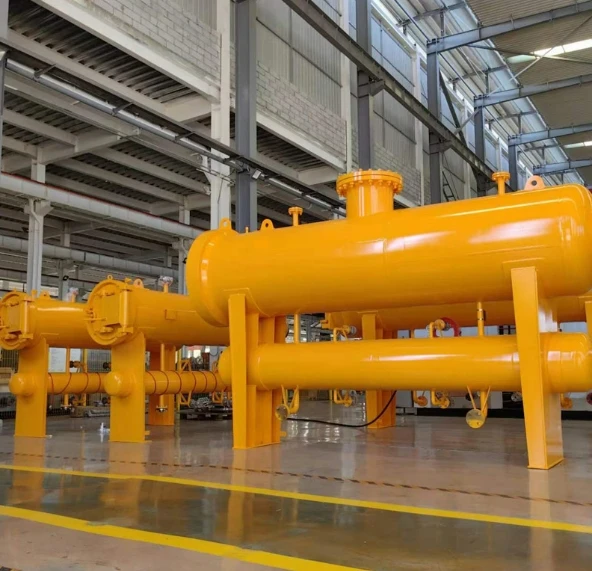
Dec . 15, 2024 15:34
Back to list
gas purifier
The Importance of Gas Purifiers in Today’s Industrial Landscape
In the ever-evolving landscape of industrial processes, the need for effective air quality management has become more crucial than ever. Among the various technologies designed to enhance air quality, gas purifiers stand out as a vital component in mitigating harmful emissions and ensuring a cleaner environment. This article explores the importance of gas purifiers, their working mechanisms, types, applications, and the significant benefits they offer to industries and society as a whole.
Understanding Gas Purifiers
Gas purifiers are specialized devices engineered to remove or reduce harmful gases and particulate matter from industrial emissions and other air sources. They play a pivotal role in ensuring compliance with environmental regulations while protecting public health. By filtering out toxic substances, these purifiers help maintain the integrity of the atmosphere, particularly in urban areas where industrial activities are concentrated.
Mechanisms of Action
The effectiveness of gas purifiers lies in their diverse mechanisms for gas treatment, which can be broadly classified into physical, chemical, and biological methods.
1. Physical Purification This involves the use of filters and adsorbents that capture contaminants through various physical processes such as adsorption and absorption. HEPA filters, activated carbon, and zeolites are common materials used in physical gas purifiers.
2. Chemical Purification This method employs chemical reactions to transform harmful gases into less harmful substances. Catalytic converters, for instance, use catalysts to facilitate reactions that convert pollutants into harmless gases.
3. Biological Purification Biological gas purifiers often utilize microorganisms or plants to absorb and metabolize pollutants. This method is particularly effective for organic compounds and can be a sustainable solution in many settings.
Types of Gas Purifiers
Gas purifiers can be categorized based on the specific type of gas they target. Common types include
gas purifier

- Volatile Organic Compound (VOC) Purifiers Designed to capture and neutralize VOCs emitted during industrial processes, these purifiers are essential in industries like painting, printing, and manufacturing.
- Sulfur Dioxide (SO2) Purifiers Often used in power plants and petrochemical industries, these are critical for reducing SO2 emissions, which are harmful to both human health and the environment.
- Nitrogen Oxides (NOx) Purifiers Used in automotive and power generation industries, these purifiers help in minimizing nitrogen oxide emissions, which contribute to smog and respiratory problems.
Applications Across Industries
The applications of gas purifiers are widespread, encompassing various sectors including manufacturing, energy, pharmaceuticals, and food processing. In manufacturing, for instance, gas purifiers are employed to clean exhaust emissions from production lines, ensuring that factories meet regulatory standards. In the energy sector, particularly in fossil fuel power plants, gas purifiers play a critical role in reducing harmful emissions and protecting air quality.
Furthermore, in the pharmaceutical industry, maintaining a clean air environment is paramount for ensuring product quality and safety. Gas purifiers help in achieving the stringent air quality standards required in this sector.
Benefits of Gas Purifiers
The benefits of using gas purifiers extend beyond regulatory compliance. They contribute to improved air quality, thereby promoting public health and reducing the incidence of respiratory illnesses linked to air pollution. Moreover, by minimizing emissions, companies can enhance their sustainability profiles, which is increasingly important in today’s eco-conscious market.
Reducing air pollution also plays a significant role in combating climate change. Industries equipped with efficient gas purifiers can significantly lower their carbon footprint, contributing to global efforts in addressing environmental challenges.
Conclusion
In summary, gas purifiers are essential tools in the modern industrial landscape, providing critical solutions for air quality management. Their innovative technologies and diverse applications underscore their importance in protecting the environment and public health. As industries continue to face increasing pressure to minimize their environmental impact, investing in effective gas purification systems will become even more relevant, ensuring a sustainable and healthy future for generations to come.
Next:
Latest news
-
Safety Valve Spring-Loaded Design Overpressure ProtectionNewsJul.25,2025
-
Precision Voltage Regulator AC5 Accuracy Grade PerformanceNewsJul.25,2025
-
Natural Gas Pressure Regulating Skid Industrial Pipeline ApplicationsNewsJul.25,2025
-
Natural Gas Filter Stainless Steel Mesh Element DesignNewsJul.25,2025
-
Gas Pressure Regulator Valve Direct-Acting Spring-Loaded DesignNewsJul.25,2025
-
Decompression Equipment Multi-Stage Heat Exchange System DesignNewsJul.25,2025

